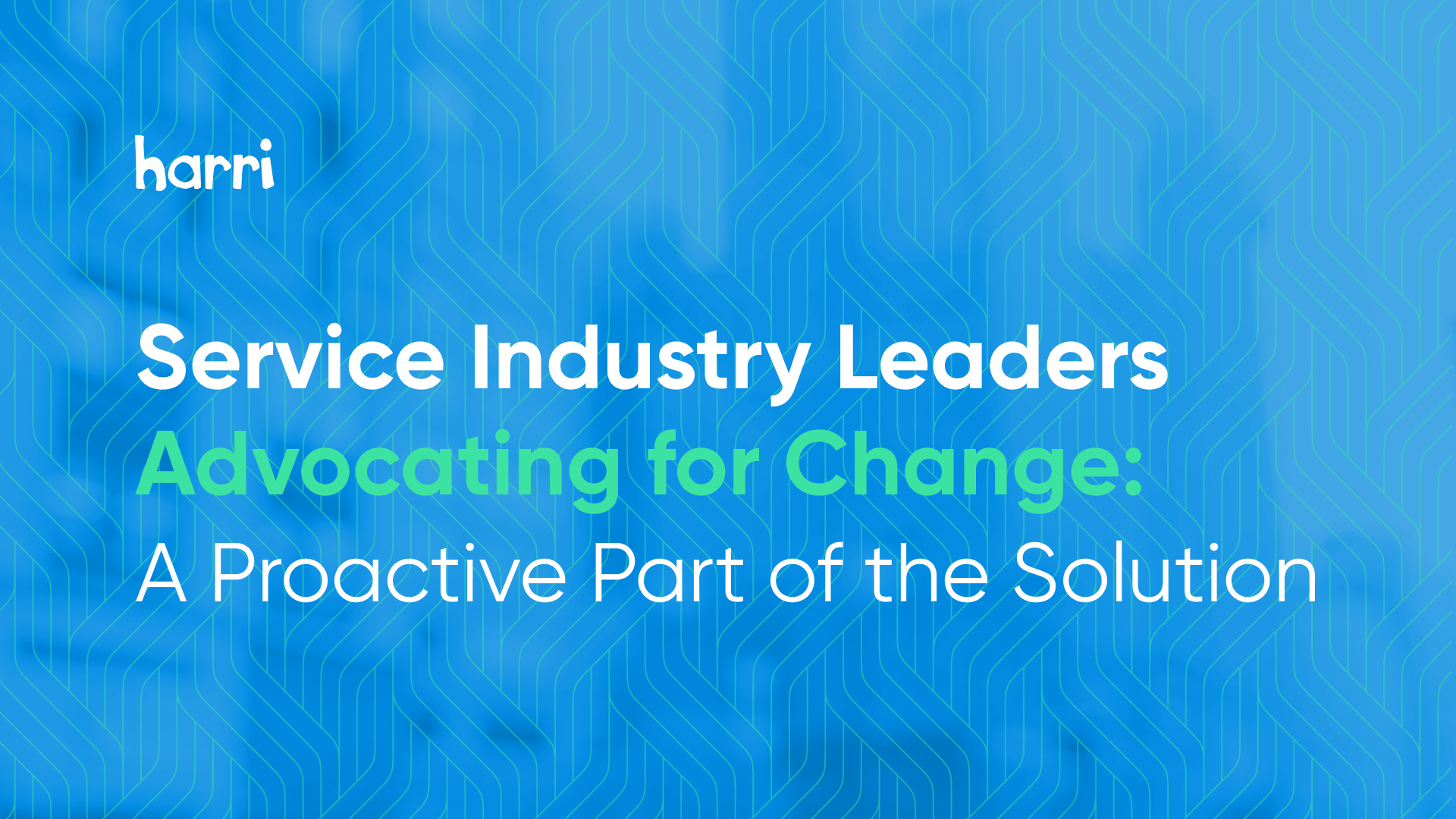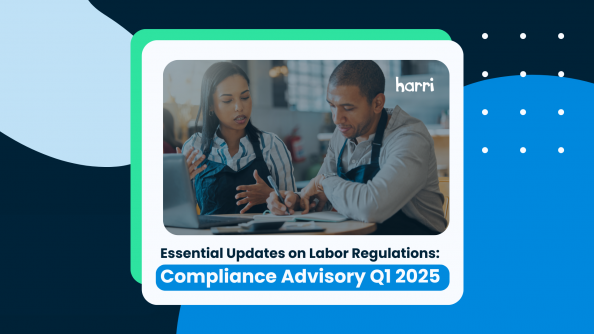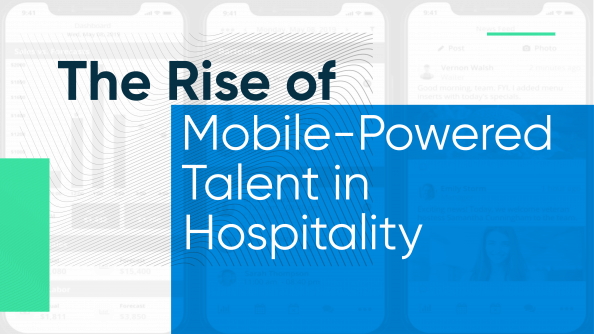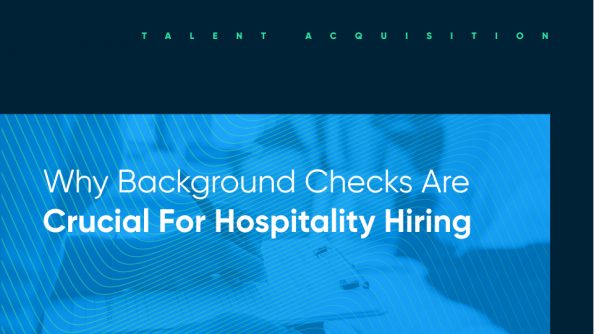Service Industry Leaders Advocating for Change: A Proactive Part of the Solution

- By Harri Insider Team | June 3, 2020
We are in the midst of a pivotal time in United States history. As the country continues its fight for justice and equality for all citizens, service-driven organizations have a responsibility to incite social change to battle injustices facing their guest and employee populations. Although the standard practice is to tread lightly around issues of politics and social justice in the workplace, leaders in these industries are finding that silence is not the answer. A clear stance around social responsibility to support organizational and cultural principles is what’s required. Leaders are navigating their response to George Floyd’s death and the recent events, and it means delving into challenging conversations. These conversations can be difficult to engage with, but are crucial to personal and social reform.
Here are some examples of brands leading social change by example:
Restaurant Brands International
In a QSR article by Danny Klein, Restaurant Brands International CEO Jose Cil said the company has committed to improving their diversity and inclusion, especially in the last year. Restaurant Brands International is the parent company of Tim Hortons, Burger King, and Popeyes. At all of their locations, time was blocked out for employers and employees alike to discuss racial issues and the response RBI is going to have as a result.
Cil is quoted in QSR saying, “It’s on us to make sure we’re living our values and doing everything we can to support equality—in our company, in our restaurants, and in our franchise community.”
RBI is an exceptional example of acknowledging a problem and handling it in a productive manner. Giving employees and employers time to discuss their fears, thoughts, and concerns about what is happening in the world around them is immensely important. Without addressing what is going on, we can never move forward in a better direction.
Yum! Brands
The CEO of Yum! Brands (David Gibbs) is implementing a strategy similar to RBI’s approach with his company. He writes in a LinkedIn article that the deaths of these men and women “made it clear that inequality and injustice in the United States runs deep, and, when unaddressed, threaten the stability of our society.”
Gibbs was influenced by the social change events of the past few weeks and the 1.5 million frontline workers Yum! Employs (KFC, Pizza Hut, Taco Bell, and The Habit Burger Grill). Their headquarters is located in Louisville, Kentucky, where Breonna Taylor was killed. He says, “Many of our team members around the globe are people of color who are navigating life’s challenges in the face of consistent bias and inequality, and this daily experience is now compounded by a global pandemic.”
Gibbs announced that Yum!, as a brand, would be investing “significantly more” time, talent, and resources to be a greater force for positive change and equality for frontline workers, and in the communities where it operates. Yum!’s commitment to being a bigger platform for social change is admirable.
Starbucks
Starbucks CEO Kevin Johnson called an employee forum in response to recent events on May 29. The forum was open to any employees who wanted to join the conversation around the deaths and “many other racial injustices that have shaken the entire country”. About 2,000 employees and family members attended the virtual event.
The forum lasted about 90-minutes and was led by the company’s global Chief Inclusion and Diversity Officer, Zing Shaw. Zing emphasised how listening to one another and understanding change has to be an active choice. Providing a safe space for employees and employers to have a dialogue about justice is incredibly important. Going forward, it is likely that other companies will follow this example of inclusive and accessible conversation.
Target
Target stores across the country are undergoing shut downs and limited hours as a response to recent lootings. As retail stores are faced with more difficulty, it is imperative to keep the right attitude. The CEO Brian Cornell responded “It’s hard to see now, but the day will come for healing—and our team will join our hearts, hands and resources in that journey”. Cornell went on to say that Target leaders are gathering with different groups and officials to determine what the best response is, and how they can be of help.
They are currently providing first aid, food, and basic needs to community members. At their shutdown stores they are continuing to pay employees for 14 days of work. On a larger scale, Target signed a letter from Children’s Minnesota (one of the largest children’s healthcare organizations) committing to address structural racism. It is encouraging to see large retail businesses are showing their support and taking initiatives.
Costco
From the grocery business side, James Sinegal and Jeffrey Brotman (founders of Costco Wholesale Corporation) are committed to being leaders in their industry. Costco owes their success to “remaining a profitable business while doing the right thing”. They have always been devoted to doing their part to help improve the world and create a global impact, but now their mission is more pointed. Grocery stores, having been essential businesses from the beginning, are experts at navigating challenging experiences. As the world continues to learn and reshape, groceries store will continue to be a communal gathering space that should feel safe and accessible to all.
Participating in events that promote conversation and education is the most productive way to combat injustice. As members of the community become more aware, they are better informed and can take steps in the right direction to cultivate change. We support and admire these businesses for doing their part and responding so successfully.




















